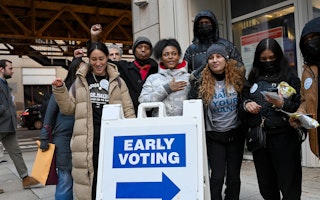The End of Marijuana Prohibition?
By Andy Ko
Have you read the 21st Amendment of the United States Constitution lately? With the gaining momentum of efforts to reform drug policies here and around the world, it’s an instructive, interesting, and very quick read.
In 1933, for the twenty-first time, America revised the document that anchors its legal and political systems and expresses the democratic and social aspirations of its people. In this instance, Americans called for an end to the disastrous 14-year experiment with mandatory alcohol prohibition.
When Congress proposed repeal of the 18th Amendment, which banned the manufacture, sale, and transportation of alcohol, it did two unusual things.
For the first and only time, Congress decided not to entrust approval of a proposed constitutional amendment to the state legislatures. Instead, Congress chose the alternative method of ratifying a constitutional amendment: state ratifying conventions specially elected for that single purpose by voters in each state. Ironically, it appears that Congress feared that state lawmakers might be more greatly influenced by special interests, such as the temperance movement, than America’s overall national interests.
The second interesting thing that Congress did was not legalize alcohol. While the proposed constitutional change would end 14 years of mandatory prohibition by repealing the 18th Amendment, it did not impose mandatory legalization. Instead, the 21st Amendment changed how alcohol policy is set and by whom, with each state having the authority to decide for itself.
The transportation or importation into any state, territory, or possession of the United States for delivery or use therein of intoxicating liquors, in violation of the laws thereof, is hereby prohibited.
In other words, Congress was saying to each state: You decide whether you want to keep booze illegal or not within your state; the federal government won’t get involved, except to protect dry states from outside interference.
Clever, right? Congress put the question directly to the American people, through elected convention representatives who committed in advance to vote a particular way on the specific question of repealing mandatory prohibition. If passed, the control of the production, sale, and regulation of alcohol, and the mitigating of its many potential harms would be turned over to state governments that would be more accountable to, and one would hope, more in tune with communities facing these potential harms.
Since then, many states have done Congress one step better by turning key aspects of alcohol regulation over to county and municipal governments—which really have their heads on the chopping block if they fail to meet community needs.
The U.S. Department of Justice has committed—at least for now—to essentially the same path for marijuana. Late last month, the Obama Administration announced federal law enforcement policy that would permit states to regulate marijuana production and distribution for adults.
In a remarkable memo to United States Attorneys across the country, Deputy Attorney General James M. Cole explained the Obama Administration’s solution to differences in state and federal marijuana laws:
In jurisdictions that have enacted laws legalizing marijuana in some form and that have also implemented strong and effective regulatory and enforcement systems … consistent with the traditional allocation of federal-state efforts in this area, enforcement of state law by state and local law enforcement and regulatory bodies should remain the primary means of addressing marijuana-related activity.
This does not mean that federal authorities will never enforce federal laws in states that have legalized marijuana use. If one of the eight federal priorities outlined in Cole’s memo is threatened, expect the federal government to have something to say about it.
So, what is the bottom line? For the states, it seems that the door is now open for effective and rational marijuana policies that serve the needs of real people and communities in terms of health, safety, justice, and possibly even revenue. Maybe this is our opportunity to reconsider, as a question of American federalism, the proper distribution of marijuana law enforcement authority between the states and the national government. It is not an either/or choice. In some areas of drug policy, state and local government can best respond to the needs of real people and communities; in other policy areas, only federal authority can protect both national and local interests.
Maybe I’m thinking too small. With the Obama Administration’s new marijuana enforcement policy, U.S. Attorney General Holder’s American Bar Association speech regarding the need for reform of the criminal justice system nationally, increasing interest in alternative local responses to drug use and drug markets, I can’t help but dream a little. Ten years ago, I honestly didn’t believe that realistic, humane, and effective marijuana policy could be a reality anywhere in the United States by 2013—and now even the federal government seems to be acknowledging that a better solution is within reach.
Could there be something like a 28th Amendment that lets the states set comprehensive drug policies that address the health and safety concerns of their local communities—and even try something different, like Washington and Colorado, with help, not interference, from the federal government? We may find out sooner than we think.
Until June 2014, Andy Ko was campaign manager for the Campaign for a New Drug Policy at the Open Society Foundations.


